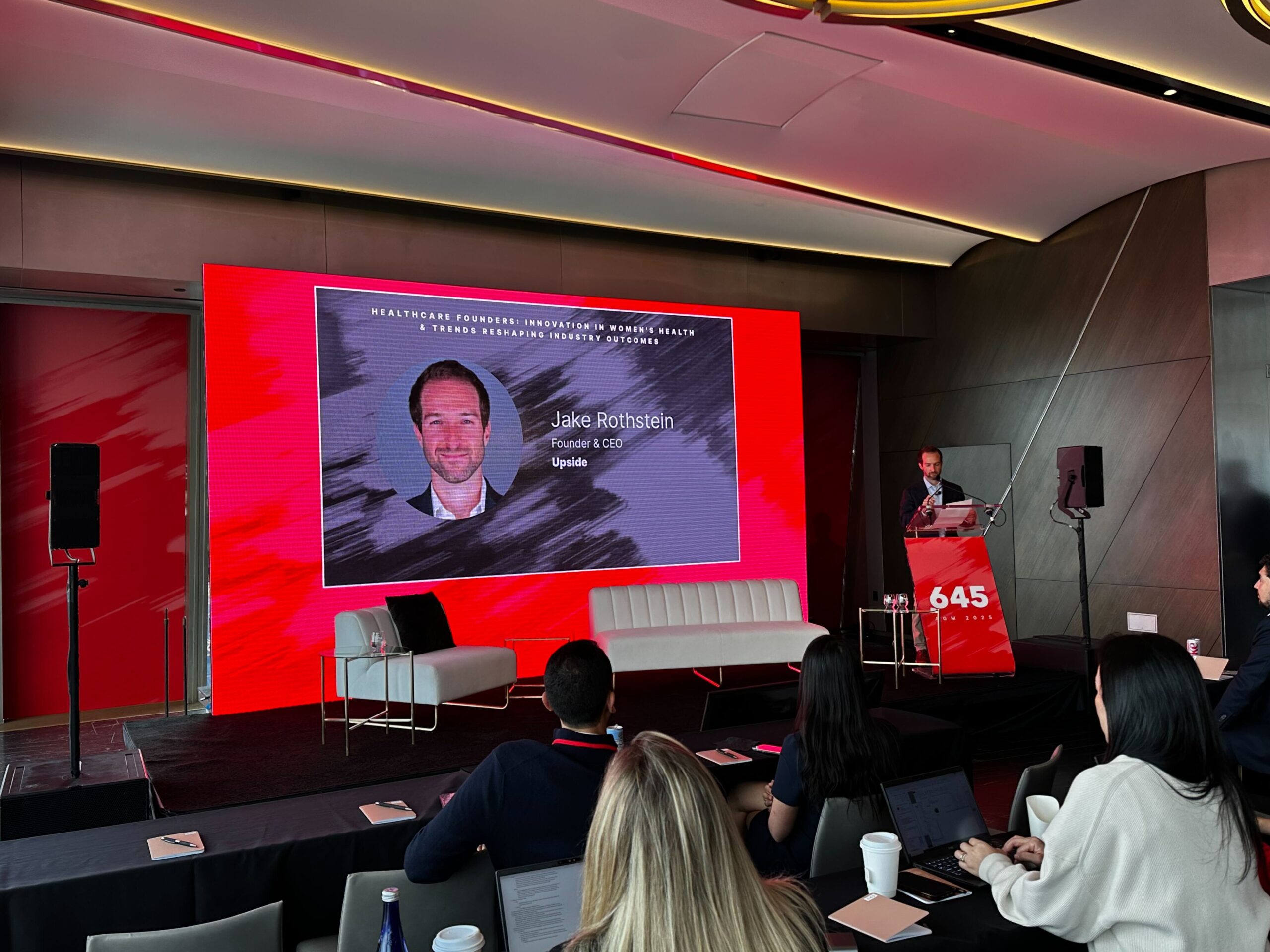
At the 645 Ventures Annual Meeting, Upside Founder and CEO Jake Rothstein joined a distinguished lineup of founders and investors under the theme “Building Generational Companies on the Edge of Innovation.”
The session, titled “Trends Reshaping Healthcare: Innovation, Technology, and the Future of Care Delivery,” explored how leading companies are using technology to transform care systems — not just for efficiency, but for equity and impact.
Representing Upside, Jake shared how housing stability is emerging as one of healthcare’s most powerful frontiers for innovation, connecting health outcomes, cost savings, and community resilience in a way no other intervention can.
Jake began by sharing a personal story that has long guided his work.
He spoke about his grandparents: how his grandfather’s Alzheimer’s diagnosis inspired his first company, Papa, and how his grandmother’s experience living alone for the first time at age 87 revealed a deeper truth. Housing instability, he explained, isn’t limited to homelessness — it includes the millions of older adults, families, and individuals quietly struggling to live safely and affordably in homes that no longer fit their needs.
“Housing instability isn’t just a social issue anymore,” Jake said. “It’s a healthcare issue. Where and how people live determines how healthy they can be.”
That realization became the foundation for Upside — a housing stability platform built for healthcare, connecting members to safe, affordable homes and helping them stay there with the right supports.
Jake described how Upside bridges two worlds that rarely operate in sync: healthcare and housing.
Through its technology platform and person-centered care model, Upside helps health plans identify vulnerable members, coordinate resources, and navigate the complex process of finding and maintaining stable housing.
“We’ve built infrastructure that combines the precision of technology with the empathy of real human support,” Jake said. “Because stability starts with trust.”
This combination of data-driven tools and human care makes it possible to address one of the most challenging social determinants of health at scale.
In the conversation, Jake emphasized that innovation alone isn’t enough. While AI plays a crucial role in Upside’s platform, it doesn’t replace human interaction — it amplifies it.
He shared stories of members whose housing journeys were made possible through this partnership between technology and empathy: AI identifying options or patterns, and Care Guides doing what only humans can — listening, motivating, and helping members believe stability is possible.
“AI triages,” Jake said. “Human empathy transforms. That’s where the real change happens.”
Jake underscored a growing truth across the healthcare landscape: if we’re serious about prevention, we have to move upstream — and that means treating housing as healthcare.
Upside’s mission is to operationalize housing stability as a core health strategy, helping payers and providers reduce preventable costs and improve outcomes. It’s a vision that fits squarely with the 645 Ventures ethos of building generational companies — those that pair strong business models with measurable social impact.
Jake closed by reflecting on what differentiates the next generation of healthcare leaders:
“Technology is no longer the moat — distribution and trust are. The companies that win will be the ones that reach people where they live, with solutions that actually change lives.”
At Upside, that’s exactly what we’re building: durable, human-first infrastructure that helps health plans, communities, and members move from crisis to stability — one home, one family, one life at a time.